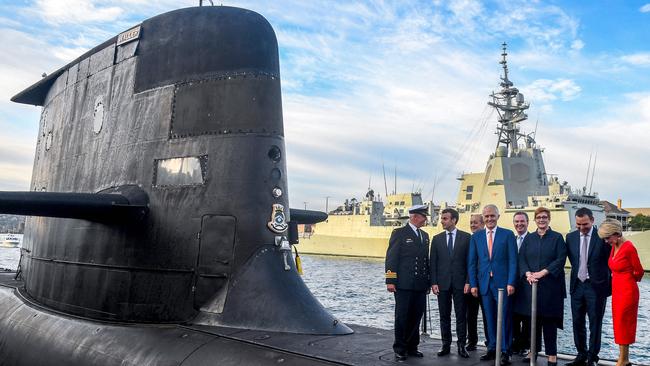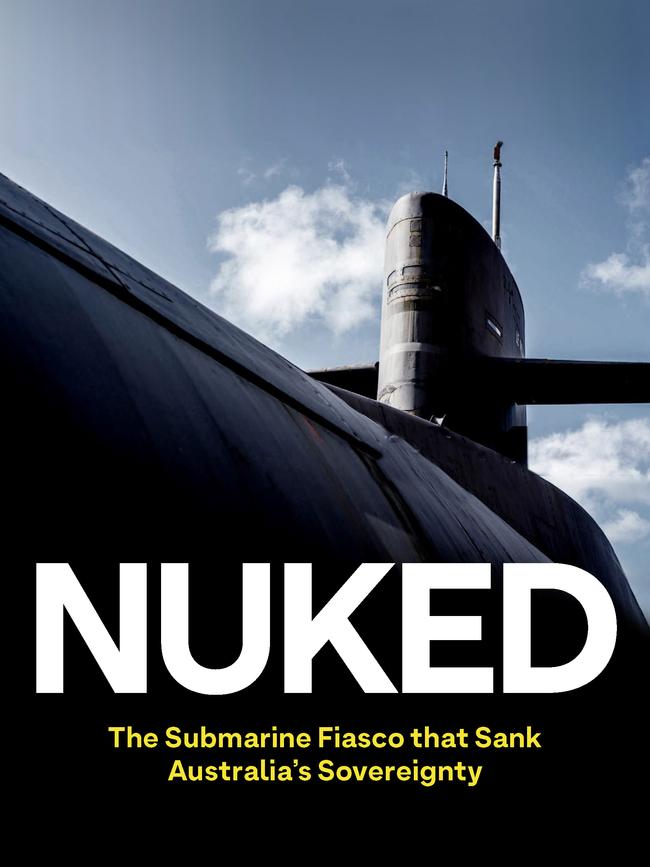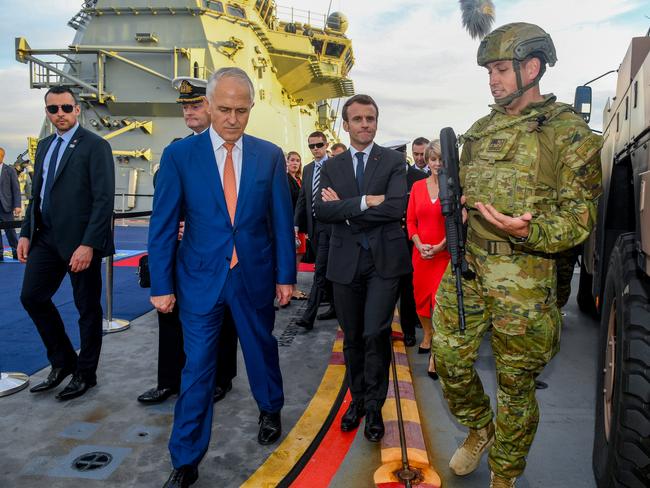Unfair sinking of French submarines
French or American? A new book examines the long road toward a new Australian submarine program.

Andrew Fowler is a veteran investigative journalist who has travelled and worked far and wide. He has worked for both The Australian (as chief of staff and acting foreign editor) and the ABC (7.30 Report, Foreign Correspondent and Four Corners).
He has form as a champion of the role of the fourth estate in seeking to hold government to account – though his enthusiasm for Julian Assange is, in my view, problematic.
He brought all this to his skills into AUKUS and the long shambles of the submarine replacement debate. He has dug well and learned a lot. His book is a serious contribution to the long-running debate.

You should read it, and here is why: his argument is that the acquisition process was secretive and shambolic before and after Malcolm Turnbull was at the helm; that Turnbull ran a sound tender process; and that the choice of the French conventional submarine was both procedurally above board and a good decision from an Australian strategic and force structure point of view.
His argument in this regard is persuasive: that the Turnbull tender included French, German and Japanese bids; and that the French bid won on its merits, in terms of the platform, its delivery and the Australian role in its production. We might have done better to stick with this rather than gamble on AUKUS.
However, the tone of the book leaves something to be desired. Fowler writes as if France, as an Indo-Pacific power, is comparable to the US and Five Eyes as the foundation of Australia’s national security planning. It isn’t even in the ballpark.
A critic of AUKUS, he declares on page 3 of his book: “A deal with France would certainly unshackle Australia and, as Turnbull argues, allow the nation to maintain its sovereignty.”
The word “unshackle” gives away his wider agenda.

He needed to set out why it took so long to make a decision at all, through both Coalition and Labor governments, as the Collins boats aged. Would we have a new Collins submarine? A Japanese one? A German one? A French one? An American one? Our processes were badly flawed, and the outcome has been, in a number of ways, sub-optimal.
Had the US itself clearly been able to supply Virginia-class SSNs quickly, that might have been a strong reason to opt for them. They weren’t and they aren’t.
Had the French submarine been demonstrably inadequate for our needs, that would have been a strong reason to avoid it. Had the question been more transparently reviewed, the son of Collins could have been chosen almost 20 years ago.
But none of this goes to the dark heart of the matter. The determining anxiety across the political board is: what if there were to be a war between the US and China and we were called upon to use our (nuclear) submarines on the American side? Above all, what if the US lost such a war, and we were left on the losing side?
There are many who believe that the US can and will hold the line and that we should, in the name of liberty and the West, stand with them.
There are others who assert, not altogether persuasively, that we can and should go it alone.
There are those who are anti-American,
anti-nuclear and even anti-Western, who believe China should rightly be, as it aspires to be, the hegemonic power in the Indo-Pacific.
Fowler appears to lean to the third. Most of us are not.
But we need to consider his arguments dispassionately, because the AUKUS deal is expensive and problematic in reality, even if one believes it has merit in theory. Moreover, the process by which Scott Morrison and Andrew Shearer steered this move through was deeply unsatisfactory.
Fowler makes three striking observations in this regard. That:
* Scott Morrison and Andrew Shearer brought about the AUKUS deal in ways that violated due and necessary processes;
* Official Washington and Whitehall connived with Morrison and Shearer to bring AUKUS about, behind the back of France;
and:
* The Australian defence establishment became top-heavy with senior American naval figures who lobbied behind the scenes for the AUKUS deal and who had clear conflicts of interest as regards their own commercial ties. These points are all well made. The book is worth reading on their account alone.
Fowler’s book, like Sam Roggeveen’s The Echidna Strategy, the work of Hugh White and that of other analysts or superannuated politicians resigned to Chinese hegemony in the Indo-Pacific, is a reminder that we must debate these issues.
But for that debate to be fruitful, participants must allow that there are several tenable points of view in play and that the overall picture is extraordinarily complex and uncertain.
If we are becoming too tied to the US, what are our feasible options? Given that we have changed horses about four times in 15 years on submarines, what are our current options? These are questions of national moment. They should not be treated as matters of political animus.
Crucial to any such serious debate are the futures of the US and of China. Michael Beckley argues persuasively, in the latest issue of Foreign Affairs, that American decline is more apparent than real. In fact, by measurable indicia, he points out, it is leaving China and the EU in its wake. China, under Xi Jinping is floundering. Its future ascendancy is far from a given.
We, for our part, need to grow up, economically, strategically and diplomatically. Hammering out this mess and adjusting the processes that led to it must be part of that self-assessment and adjustment – and this goes way beyond the submarine decision.
The merit in Fowler’s heretical book is that it shows this to be so.
Like The Echidna Strategy, it should be read – critically – for that reason.
Don’t shoot the messengers. Address their arguments. Solve the very real problems.
Paul Monkis a former head of the China desk in the Defence Intelligence Organisation, a long-time consultant in applied thinking skills and the author of a dozen books, including Thunder From the Silent Zone: Rethinking China (2nd edition 2023) and The West in a Nutshell (2009).








To join the conversation, please log in. Don't have an account? Register
Join the conversation, you are commenting as Logout